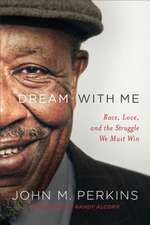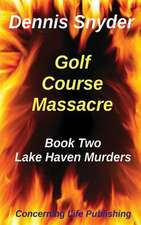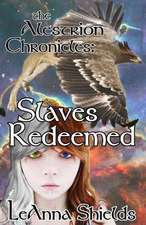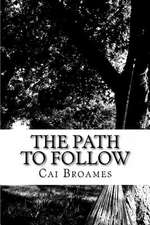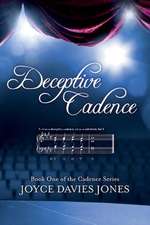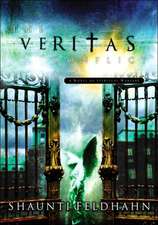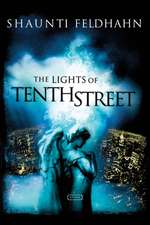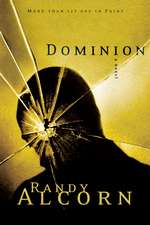Deception
Autor Randy Alcornen Limba Engleză Paperback – 31 mar 2008
Vezi toate premiile Carte premiată
Christian Book Award (2008), Christian Retailing's Best (2008)
-Ollie Chandler
Homicide detective Ollie Chandler has seen it all. Done more than he cares to admit. But when he’s called to investigate the murder of a Portland State University professor, he finds himself going places he’s never gone before.
Places he never wanted to go.
Because all the evidence is pointing to one horrific conclusion: The murderer is someone in his own department. That’s not the worst of it, though. Ollie has nagging doubts…about himself. Where was he during the time of the murder?
Joined by journalist Clarence Abernathy and their friend Jake Woods, Ollie pushes the investigation forward. Soon all three are drawn deep into corruption and political tensions that threaten to destroy them–and anyone who tries to help. But they’re in too deep to quit. They’ve got no choice. They have to follow the evidence to the truth…
No matter how ugly–or dangerous–it gets.
A gripping story of murder and spiritual struggle, Deception proves, as never before, the truth of Ollie’s first law: “Things are often not what they appear.”
From the Hardcover edition.
Preț: 105.96 lei
Nou
Puncte Express: 159
Preț estimativ în valută:
20.28€ • 21.68$ • 16.91£
20.28€ • 21.68$ • 16.91£
Carte disponibilă
Livrare economică 28 martie-11 aprilie
Preluare comenzi: 021 569.72.76
Specificații
ISBN-13: 9781601420992
ISBN-10: 1601420994
Pagini: 490
Dimensiuni: 155 x 231 x 33 mm
Greutate: 0.5 kg
Editura: Multnomah Books
ISBN-10: 1601420994
Pagini: 490
Dimensiuni: 155 x 231 x 33 mm
Greutate: 0.5 kg
Editura: Multnomah Books
Notă biografică
Bestselling author Randy Alcorn is the founder and director of Eternal Perspective Ministries. His novels include Deadline, Dominion, Edge of Eternity, Lord Foulgrin’s Letters, The Ishbane Conspiracy, and the Gold Medallion winner, Safely Home. He has written eighteen nonfiction books as well, including Heaven, The Treasures Principle, The Purity Principle, and The Grace and Truth Project. Randy and his wife, Nanci, live in Oregon. They have two married daughters, Karina and Angela, and three grandsons.
From the Hardcover edition.
From the Hardcover edition.
Extras
Wednesday, November 6
My chest pounding like a dryer load of army boots, I knocked the noisemaker off its cradle, then groped for it in the darkness. Three enormous red digits–2:59–assaulted my eyes.
“Hello?” The voice on the phone was deep and croaky. “Detective Ollie
Chandler?”
I nodded my head, admitting it.
“Chandler?”
“Yeah.”
“You didn’t answer your cell.” His voice was a hacksaw cutting a rain gutter.
“You awake?”
“No. But…you may as well finish the job.”
“In bed?”
“Mowin’ the lawn. Who died?”
I’ve been waiting all my life for good news from a 3:00 a.m. phone call. It’s been a wait of Chicago Cubs proportions.
Many imagine that middle-of-the-night phone calls mean someone’s been killed. I don’t imagine it. It’s true.
Jake Woods tells me there’s a God in charge of the universe. I’m not convinced. But if there is, I’d appreciate it if He’d schedule murders during day shift.
“Victim’s Jimmy Ross,” Sergeant Jim Seymour said. I pictured him sitting home in his underwear. Not a pretty picture.
“Drug dealer.”
I didn’t shed a tear. They say cops are cynical. To me drug dealers are a waste of protoplasm. They should be shot, injected, then put on the electric chair at a low setting.
“Officer Sayson’s the patrol,” Sergeant Seymour said. “1760 Southeast Clinton, apartment 34.” I scratched it down in the dark, postponing those first daggers of light.
As I hung up, I sensed a presence in the dark room and reached toward the nightstand for my Smith and Wesson 340 revolver. I saw the whites of two eyes three feet away. My hand clenched the revolver. Suddenly I recognized the sympathetic eyes of Mike Hammer, my bullmastiff, who spends his nights getting in and out of my bed, licking my toes to reassure me he’s back.
Slowly I withdrew my hand from the gun, not wanting to send the wrong message to my bullie.
What was wrong with me? How could I forget Mike Hammer, my roommate and best friend? I shuddered, remembering five years ago, when I drew the gun on Sharon when she came back to bed after taking Advil.
The problem with morning is that it comes before my first cup of coffee. I stumbled toward the kitchen, fingertips on the hallway wall, stubbing my toe on the exercise bike Sharon bought me. I’ve used it twice in four years. I keep it around to maintain the illusion that it’s making me healthy. Since this helps me justify the next cheeseburger, it’s worth every penny she paid.
I keep water in my top-of-the-line Mr. Coffee, poured to the ten-cup mark, with Starbucks French roast always waiting. In my quest for maximum darkness, I load the filter to the top. Whether it’s 7:00 a.m. or 3:00 a.m., I can throw the switch and, even though the world’s going to hell in a handbasket, coffee’s brewing…so there’s hope.
I leaned against the fridge and pulled the pot off the burner every few ounces to get what was there. I’d mainline it if I could. Sharon told me maybe I should drink less coffee now that Juan Valdez named his donkey after me.
Trying to remember whether I’d had three hours of sleep or two, I put Mike Hammer–I call him Mulch for short–out the back door to do his business. Every morning he acts like it’s his first time, a privilege he’s been waiting for all his life. After two minutes outside for him and six more ounces of coffee for me, Mulch blew open the door to get his biscuit.
I abandoned Mr. Coffee and headed for the bathroom. I put my face two inches from the showerhead and let the water pummel me.
Presumably I dressed, poured the last of the coffee into my thirty-ounce mug, and said good-bye to two of my favorite people–Mulch and Mr. Coffee. Mulch licked my face. I wiped off Mulch-slobber and tossed the paper towel at the sink, coming up short. I slowly shut the front door, watching Mulch shred the paper towel–his reward whenever I miss.
“You’re in charge while I’m gone.”
Mulch loves it when I say that.
It was early November but felt like late December. Like a polar bear on ice, I negotiated the slick walk to my white Ford Taurus. I dropped into the driver’s seat and kicked aside a Big Gulp cup and a Burger King bag, which expelled the scent of French fries like a perfume spray bottle. I must have been on a stakeout the night before. Maybe two nights before. Eventually I’d remember.
You shouldn’t assume I was conscious during all this. A detective establishes his routine so he can do it in his sleep. You wake up on the way, more at each stoplight. By the time you really need consciousness, it’s usually there. You just hope it doesn’t arrive at the scene after you do.
It was dripping cold. I drew the window half down to double-team with the coffee. Every few blocks I stuck my face out–I learned this from Mulch–and gulped a quick fix of wet oxygen. Then I pulled in my frozen face and warmed it with the coffee. It’s a ritual, like those Scandahoovean men who go back and forth from ice baths to saunas.
The Portland night, nearly uninhabited, smelled of frosty rain on asphalt. It reminded me of working the beat, night shift. One year I saw no daylight between November and February. From what I heard, I didn’t miss much.
When you’re on the “up team”–on call for the next murder–getting yanked from the netherworld in the middle of the night comes with the territory. It’s the only thing easier now since Sharon died: I don’t have to worry about her worrying about me.
I turned onto Burnside, next to Max, the light-rail tracks, where there’s only one lane. Occasionally people don’t understand that what I’m doing is more important than what they’re doing. The moron in front of me–only the fourth car I’d seen–just sat there in his lowrider Acura Integra, figuring that since it’s 3:23 a.m., he can chat with someone on the curb, even after the light’s turned green.
My Taurus is a slicktop–unmarked. Cop on the inside, civilian on the outside. Usually that’s handy. Not this time. I honked. Nothing.
I honked again. Then I reached to my right and typed in the license number on my mobile data computer. I honked a third time.
The bozo charged out of his car, yelling and swearing. When he was two feet from my window, I pulled my Glock 19 and pointed it at his face.
“Get out of my way. Now.”
He froze, with the fixated expression of a man wetting his pants. He scuttled back to his car sideways, like a crab, and hopped in, banging his head on the door frame. He turned his key with a garbage-disposal grind, forgetting he’d left the car running. He screeched through the now-red light.
I flipped on my flashing red and blue grill-mounted strobes. He edged to the right, and I passed with an inch clearance. My computer screen flashed. I lowered my passenger window and shouted, “Have a nice day, Nathan Roberts!”
Okay, maybe when he approached my car I should have identified myself as a cop. But many people assume that if you’re a cop you won’t shoot them. I didn’t want Nathan to labor under this assumption.
Having been a cop for thirty years, I find that you can get most of what you want with a kind word. But sometimes, as Al Capone put it, you can get more of what you want with a kind word and a gun.
“Sayson?” I spoke into the car phone. “Chandler. Homicide. On my way. 1760 Southeast Clinton? Apartments?”
“Greenbridge Arms. Third floor, four doors left off the elevator. Apartment 34’s sealed. My partner’s checking on neighbors. Dozen people heard the shots. One possible witness.”
“Be there in five.”
When I’m on the up team, anybody who kills somebody does it on my watch. That means they’re messin’ with me. And messin’ with me’s like wearin’ cheese underwear down rat alley.
I pulled up to the Greenbridge Arms, studying the four-story brick building. I settled next to one of three patrol cars in a no parking zone, beside a van labeled KAGN.
Four criminals rushed me, armed with notepads, pens, electronic gadgets, and cameras. Crips and Bloods have a name. So do these–journalists.
“What can you tell us, Detective Chandler?” The Oregon Tribune reporter brandished her notepad, poison pen ready to scribble.
“Nothing. If you check your notes, you’ll see I just arrived.”
“They’re denying us entrance to the apartments.”
“Good for them.” This was standard procedure, but reporters–thinking they’re royalty–are outraged when they aren’t allowed to trample a crime scene.
“Victim’s name’s Jimmy Ross, apartment 34. Right?”
Apparently someone on police radio had slipped up and said the victim’s name. “There’s a victim?”
“We called neighbors, and they confirmed it was Jimmy Ross. True?”
“Why would I tell you?”
“What’s the harm? We heard it on the radio. We just want you to confirm it.”
“Don’t hold your breath.”
“We’re just doing our job.”
“You’re getting in the way of me doing my job. Monitor your own calls.”
“Cops don’t own the airwaves. The public deserves to know what’s going on.”
I turned away as her photographer took a photo. He grabbed the sleeve of my trench coat. I yanked it back. I turned toward him. His camera flash did that dagger thing in my eyes.
“Out of my face!”
I saw the red light of a television news camera right behind him. Images of my anger management class assaulted me. I’d sworn I’d never subject myself to that again.
I smiled and waved to the camera. “Just kidding! Actually, I want to thank you folks for coming. I wish I had time for tea and crumpets, but we have a crime to solve and people’s lives to protect, so if it doesn’t inconvenience you, I’ll be going up to the crime scene now. Enjoy.”
The Tribune and TV reporters and their cameramen followed me to the front door of the apartments, where Officer Brandon Gentry opened the door for me. He and I nodded at each other, two professionals trying to beat off the vultures. I wondered if he was an anger management alumnus. They should give us a secret hand signal. I signed his log sheet and wrote down the time: 3:39 a.m.
The TV cameraman pushed open the front door and did a quick sweep with his video. As I stepped in the elevator, I said, “Officer Gentry, there’s a van illegally parked. I think it has the letters KAGN on it. Would you please write a parking citation?”
The door closed and I tried not to ponder how the media, especially the Tribune, had been my judge, jury, and nearly my executioner fifteen years before. I needed to switch gears to the job at hand. At least I was awake.
The elevator was old, with a bad case of asthma. As I got out on the third floor, I popped in a stick of Black Jack gum–my crime scene entrance ritual.
I headed up the hall to the left and saw a cop, midtwenties, poised like a jackal guarding pharaoh’s tomb.
“Sayson?”
He nodded, too eagerly. Academy written all over him, Officer Sayson exuded a Secret Service alertness. If he lives long enough, eventually it’ll give way to the fear of dying on duty and leaving behind kids and the wife he’s promised not to forsake. Eagerness to jump into the middle of a dangerous situation is inversely proportionate to age. Twenty years ago I was chasing armed fugitives down back alleys, by myself. Now my first thought is to call for SWAT teams, armored cars, helicopters, guided missiles, or stealth bombers–whatever’s available.
I’m a Vietnam vet. Someone watching my back means everything. Officer Sayson was protecting my crime scene; he was my new best friend.
Entering apartment 34, I stepped from hallway to crime scene. There, sprawled in a death pose, was Jimmy Ross, two shots to the head. Physical evidence all over the place, with a bonus: a sealed Ziploc bag of Ecstasy and a half-spilled sack of meth. No need for a lab report to tell me what was what.
Sayson introduced me to the apartment manager, who assured me Ross lived alone. No wife, live-in girlfriend, brother, cousin, friend, or roommate. Sayson consulted two neighbors who’d noticed lots of coming and going. The manager appeared shocked, as if he’d never suspected one of his renters was a drug dealer. Go figure.
Since most murders are done by family members, that’s where you look first. Domestic arguments normally begin in the living room, where weapons are limited. They migrate to the kitchen, where weapons abound, or the bedroom, where there’s a gun, which has a way of ending fights. This argument had stayed in the living room. No sign the killer had been anywhere else–only between the door and body. Didn’t fit the domestic murder profile.
Sayson told me the paramedic who’d come twenty minutes ago had pronounced Jimmy Ross dead. I looked at what used to be the man. He was dead all right.
The medical examiner, Carlton Hatch–I’d seen him at a dozen other homicides–showed up ten minutes after I did. Most MEs ask you to call them when you want the body removed, after the crime scene’s clean and detailed. Unless time of death is unknown, the ME may not arrive until three or four hours later. Not Hatch. Every time I’ve worked with him, he’s come immediately, like an autograph hound to an NFL team hotel.
Hatch is a number two pencil, head pink and bald like an eraser. He carries a man-purse and wears a nicely fitted suit beneath a poorly fitted face. His pointy chin isn’t a good match for his pale, bloated cheeks. Too much chlorine in his gene pool.
I gazed down at my Wal-Mart jacket over my flannel shirt spotted with yesterday’s bacon and cheese omelet. I considered my rumpled slacks, pockets holding Tuesday’s Taco Bell receipt and a packet of hot sauce. Then I looked again at the ME’s tailored suit.
“Tuxedo at the dry cleaners?” I asked him.
His smile came quick and left quicker. This guy should be home watching Quincy reruns. I wanted to be home sleeping it off or watching Jack Bauer interrogate a terrorist.
“Blood spattered here.” Hatch pointed to the wall. “Isn’t that interesting?” I nodded, though it wasn’t. I prefer the CSI techs, who quietly collect evidence, report to me, and let me interpret it. The ME’s specialty is the state of the body: cause and time of death. I like it when people stick to their specialties.
“Probable cause of death gunshots to the head,” he said slowly, as if he had drawn on years of training to come up with this. Any kindergartner could have told me the same.
“Another splatter here. Don’t you find that interesting?”
“Isn’t that what you’d expect with two head shots at close range?” I asked.
“Still, it’s interesting.”
“As interesting as last month’s cricket scores,” I said.
Two CSIs in forensic bunny suits arrived. One vacuumed; the other photographed. They collected blood samples, carpet fibers, and anything possibly containing DNA fragments. I sketched the scene on a yellow pad. I supplemented with dozens of photos on my Olympus digital camera. Nice change from the Polaroids we used to take.
“Chandler?” The loud voice startled everybody. Barging in the door was my partner, Manny Domast, wiry, short, and high-strung, like one of those yippy dogs who starts the day with five cappuccinos.
“You look terrible,” he said.
Manny’s grumpy at 10:00 a.m. At 3:48 a.m. the difference isn’t noticeable.
“What we got?” he asked.
“It’s interesting,” I said, eyeing the ME, who chose that moment to formally declare that Ross had died one to two hours ago. Good estimate, since the gunshots eighty minutes ago woke up all tenants except the hard rock fans.
After CSI went over Ross’s cell phone, I checked its directory, jotted down the numbers of the last five incoming and outgoing calls. Manny listened to messages. He contacted two of the callers, a middle-of-the-night fishing expedition. Meanwhile, I talked with the wide-eyed ponytailed witness in apartment 36.
She’d been walking up and down the hallway at 2:30 a.m.
“Why?” I asked.
“I had rats in my legs.” She gave a detailed description of a tall black guy with lots of hair and red sweatpants who’d been in the hallway five minutes before she heard the shots. He’d scared her. She pretended not to look at him.
Within twenty minutes, Manny and I determined it was a case of a drug dealer blown away by his competitor. A turf dispute. We found one bullet embedded in the floor, probably the second shot. Apparently the other bullet hadn’t exited. Fingerprints with slight blood traces were on the doorknob. But there was no indication that the killer had touched the victim, so it seemed likely the blood was the killer’s, though what made him bleed wasn’t obvious. Perhaps a small pre-existing wound that reopened without him knowing it? DNA tests wouldn’t be back for months, but I called headquarters to see if we could get the lab to do a rush on the three good fingerprints collected.
Murder is never convenient, but solving a murder can be routine. This one had routine written all over it. The only thing missing was the killer’s name, Social Security card, and a confession written in lipstick on the bathroom mirror.
While Manny canvassed the apartments, I went to the hallway’s end and stepped outside onto a rickety fire escape. I opened my mouth wide, gulping life.
It seemed so easy. A good description and fingerprints and DNA.
That’s when I should have suspected something was wrong.
Napoleon said–I heard this on the History Channel while eating Cheetos with Mulch–that every campaign has ten minutes in which the battle’s won or lost. Sometimes investigations are that way. Looking back, the ten minutes in which I botched that investigation were right when everything fell together perfectly.
I got a call from precinct saying an anonymous tipster had heard Lincoln Caldwell boast of offing another drug dealer. By 6:00 a.m., we found tall, big-haired Lincoln Caldwell, asleep in his room, red sweatpants hanging on his bedpost. His gun, in the top dresser drawer, had been recently fired. As I looked at the four rounds left in it, I didn’t need ballistics to convince me that the gun would prove a perfect match for the rounds that killed Ross. His cell phone confirmed he’d called Ross six hours earlier.
He denied it all, naturally. They always do. We arrested him and hauled him in.
I felt like a crossword puzzle champion holding a puzzle any kid could solve. I’m a Sherlock Holmes fan. I like to follow bread crumbs, not six baguettes leading me to someone standing twelve feet away who hands me a business card saying “Lincoln Caldwell, Murderer.”
Still, I couldn’t argue with the bottom line. Two drug dealers for the price of one. One dead, the other off the streets for however long the court decides. Never long enough for me.
Sometimes the bad guys help out the good guys by doing what we can’t–blowing each other away. Kill a killer and you may save a half dozen lives. Kill a drug dealer and you may save a couple dozen. That’s what cops say to each other off the record. And cop-to-cop is always off the record.
I once cracked a case based on my discovery that one Monday morning a woman had broken her routine by ordering a grande white chocolate mocha. Remarkable for one reason: Every weekday for five years she’d gone to the same coffee shop and ordered a tall skinny latte. Something had to account for her celebratory mood. I checked on her because her husband had died of “natural causes” on Saturday. The white mocha tipped me off that she might have contributed to those natural causes.
It took me a whole baseball season to prove it, but by the time the Yankees took the field for the first game of the World Series, I’d got her. No prize. No bonus. No street named after me. No letters of gratitude from husbands whose wives were on the verge of ordering their first white chocolate mochas. But that’s okay. I don’t do it for the thanks. I do it because justice is my job, my one contribution to a world that is truly–and I mean big time–a mess.
I’m saying this because the devil’s in the details. Jimmy Ross’s murder didn’t require turning over rocks. Everything that mattered fell into place. Even if we never identified the tipster, when they processed the fingerprints and the weapon and the blood DNA, it would be a trifecta, a perfect triangle of independent evidence. Together they were irrefutable. The case was open and shut. Lincoln Caldwell was our man.
I spent more time on the paperwork than investigating. When two and two make four, you don’t try to refigure it six different ways to see if it comes out three or five. You tie a bow around it, give it to the district attorney, and move on. You hoist a beer or two and watch a football game and tell yourself that even though you’re no Mother Teresa, you’ve done something that mattered. Case closed.
Of my 204 murder cases, I’ve solved 177. That’s 87 percent. The rest, cold cases, still burn deep in my gut. Every year or two, sometimes on vacation, I solve one of those oldies in my quest to raise my batting average to .900. Of course, if I ever make that, I’ll want more.
I sent a man to jail for a double murder he didn’t commit. Bradford Downs. I know his face well. Two credible witnesses offered convincing testimony to back up compelling physical evidence. He claimed innocence, but his record made that hard to believe. After ten years of appeals, he was executed by lethal injection.
Turns out the witnesses were the real killers. We’d never have known if the one dying hadn’t confessed and offered proof…three years after an innocent man was put to death.
Maybe there is something as bad as murder and getting away with it–being murdered for a murder you didn’t commit. Since I put him away, that makes me an accessory to murder.
Bradford Downs’s face wouldn’t be my first choice to fill the back of my eyelids when the lights go out, but some nights there he is.
So why am I telling you this? Because I didn’t realize that morning at Jimmy Ross’s apartment that nothing was as it appeared. That case was open and shut all right…open and shut on a dead-wrong conclusion. And I fell for the setup. That makes me mad. It makes me even madder that it was only fate or circumstances or luck or providence–whichever you believe in doesn’t matter to me–that made me realize it.
Portland homicide has five teams, so Manny and I get every fifth murder. It was our next murder, the one fourteen days later, that pulled the rug out from under me. Eventually it woke me to a shocking truth that forever revised the story of Jimmy Ross and Lincoln Caldwell.
That second murder turned me, my job, and my friendships upside down. It shook all the change out of my pockets. It threatened to bring down a police department, end my career, and place me inside a white chalk outline, with some other homicide detective trying to figure out who murdered me.
Not one of those 204 cases prepared me for that next murder, where sinister eyes, hidden in the shadows of a violated house, gazed out at me through a broken window. It was the most unconventional and baffling case I’ve ever worked.
If that’s not enough, my investigation threatened to end the lives of people I cared about.
And, ultimately, that’s exactly what it did.
From the Hardcover edition.
My chest pounding like a dryer load of army boots, I knocked the noisemaker off its cradle, then groped for it in the darkness. Three enormous red digits–2:59–assaulted my eyes.
“Hello?” The voice on the phone was deep and croaky. “Detective Ollie
Chandler?”
I nodded my head, admitting it.
“Chandler?”
“Yeah.”
“You didn’t answer your cell.” His voice was a hacksaw cutting a rain gutter.
“You awake?”
“No. But…you may as well finish the job.”
“In bed?”
“Mowin’ the lawn. Who died?”
I’ve been waiting all my life for good news from a 3:00 a.m. phone call. It’s been a wait of Chicago Cubs proportions.
Many imagine that middle-of-the-night phone calls mean someone’s been killed. I don’t imagine it. It’s true.
Jake Woods tells me there’s a God in charge of the universe. I’m not convinced. But if there is, I’d appreciate it if He’d schedule murders during day shift.
“Victim’s Jimmy Ross,” Sergeant Jim Seymour said. I pictured him sitting home in his underwear. Not a pretty picture.
“Drug dealer.”
I didn’t shed a tear. They say cops are cynical. To me drug dealers are a waste of protoplasm. They should be shot, injected, then put on the electric chair at a low setting.
“Officer Sayson’s the patrol,” Sergeant Seymour said. “1760 Southeast Clinton, apartment 34.” I scratched it down in the dark, postponing those first daggers of light.
As I hung up, I sensed a presence in the dark room and reached toward the nightstand for my Smith and Wesson 340 revolver. I saw the whites of two eyes three feet away. My hand clenched the revolver. Suddenly I recognized the sympathetic eyes of Mike Hammer, my bullmastiff, who spends his nights getting in and out of my bed, licking my toes to reassure me he’s back.
Slowly I withdrew my hand from the gun, not wanting to send the wrong message to my bullie.
What was wrong with me? How could I forget Mike Hammer, my roommate and best friend? I shuddered, remembering five years ago, when I drew the gun on Sharon when she came back to bed after taking Advil.
The problem with morning is that it comes before my first cup of coffee. I stumbled toward the kitchen, fingertips on the hallway wall, stubbing my toe on the exercise bike Sharon bought me. I’ve used it twice in four years. I keep it around to maintain the illusion that it’s making me healthy. Since this helps me justify the next cheeseburger, it’s worth every penny she paid.
I keep water in my top-of-the-line Mr. Coffee, poured to the ten-cup mark, with Starbucks French roast always waiting. In my quest for maximum darkness, I load the filter to the top. Whether it’s 7:00 a.m. or 3:00 a.m., I can throw the switch and, even though the world’s going to hell in a handbasket, coffee’s brewing…so there’s hope.
I leaned against the fridge and pulled the pot off the burner every few ounces to get what was there. I’d mainline it if I could. Sharon told me maybe I should drink less coffee now that Juan Valdez named his donkey after me.
Trying to remember whether I’d had three hours of sleep or two, I put Mike Hammer–I call him Mulch for short–out the back door to do his business. Every morning he acts like it’s his first time, a privilege he’s been waiting for all his life. After two minutes outside for him and six more ounces of coffee for me, Mulch blew open the door to get his biscuit.
I abandoned Mr. Coffee and headed for the bathroom. I put my face two inches from the showerhead and let the water pummel me.
Presumably I dressed, poured the last of the coffee into my thirty-ounce mug, and said good-bye to two of my favorite people–Mulch and Mr. Coffee. Mulch licked my face. I wiped off Mulch-slobber and tossed the paper towel at the sink, coming up short. I slowly shut the front door, watching Mulch shred the paper towel–his reward whenever I miss.
“You’re in charge while I’m gone.”
Mulch loves it when I say that.
It was early November but felt like late December. Like a polar bear on ice, I negotiated the slick walk to my white Ford Taurus. I dropped into the driver’s seat and kicked aside a Big Gulp cup and a Burger King bag, which expelled the scent of French fries like a perfume spray bottle. I must have been on a stakeout the night before. Maybe two nights before. Eventually I’d remember.
You shouldn’t assume I was conscious during all this. A detective establishes his routine so he can do it in his sleep. You wake up on the way, more at each stoplight. By the time you really need consciousness, it’s usually there. You just hope it doesn’t arrive at the scene after you do.
It was dripping cold. I drew the window half down to double-team with the coffee. Every few blocks I stuck my face out–I learned this from Mulch–and gulped a quick fix of wet oxygen. Then I pulled in my frozen face and warmed it with the coffee. It’s a ritual, like those Scandahoovean men who go back and forth from ice baths to saunas.
The Portland night, nearly uninhabited, smelled of frosty rain on asphalt. It reminded me of working the beat, night shift. One year I saw no daylight between November and February. From what I heard, I didn’t miss much.
When you’re on the “up team”–on call for the next murder–getting yanked from the netherworld in the middle of the night comes with the territory. It’s the only thing easier now since Sharon died: I don’t have to worry about her worrying about me.
I turned onto Burnside, next to Max, the light-rail tracks, where there’s only one lane. Occasionally people don’t understand that what I’m doing is more important than what they’re doing. The moron in front of me–only the fourth car I’d seen–just sat there in his lowrider Acura Integra, figuring that since it’s 3:23 a.m., he can chat with someone on the curb, even after the light’s turned green.
My Taurus is a slicktop–unmarked. Cop on the inside, civilian on the outside. Usually that’s handy. Not this time. I honked. Nothing.
I honked again. Then I reached to my right and typed in the license number on my mobile data computer. I honked a third time.
The bozo charged out of his car, yelling and swearing. When he was two feet from my window, I pulled my Glock 19 and pointed it at his face.
“Get out of my way. Now.”
He froze, with the fixated expression of a man wetting his pants. He scuttled back to his car sideways, like a crab, and hopped in, banging his head on the door frame. He turned his key with a garbage-disposal grind, forgetting he’d left the car running. He screeched through the now-red light.
I flipped on my flashing red and blue grill-mounted strobes. He edged to the right, and I passed with an inch clearance. My computer screen flashed. I lowered my passenger window and shouted, “Have a nice day, Nathan Roberts!”
Okay, maybe when he approached my car I should have identified myself as a cop. But many people assume that if you’re a cop you won’t shoot them. I didn’t want Nathan to labor under this assumption.
Having been a cop for thirty years, I find that you can get most of what you want with a kind word. But sometimes, as Al Capone put it, you can get more of what you want with a kind word and a gun.
“Sayson?” I spoke into the car phone. “Chandler. Homicide. On my way. 1760 Southeast Clinton? Apartments?”
“Greenbridge Arms. Third floor, four doors left off the elevator. Apartment 34’s sealed. My partner’s checking on neighbors. Dozen people heard the shots. One possible witness.”
“Be there in five.”
When I’m on the up team, anybody who kills somebody does it on my watch. That means they’re messin’ with me. And messin’ with me’s like wearin’ cheese underwear down rat alley.
I pulled up to the Greenbridge Arms, studying the four-story brick building. I settled next to one of three patrol cars in a no parking zone, beside a van labeled KAGN.
Four criminals rushed me, armed with notepads, pens, electronic gadgets, and cameras. Crips and Bloods have a name. So do these–journalists.
“What can you tell us, Detective Chandler?” The Oregon Tribune reporter brandished her notepad, poison pen ready to scribble.
“Nothing. If you check your notes, you’ll see I just arrived.”
“They’re denying us entrance to the apartments.”
“Good for them.” This was standard procedure, but reporters–thinking they’re royalty–are outraged when they aren’t allowed to trample a crime scene.
“Victim’s name’s Jimmy Ross, apartment 34. Right?”
Apparently someone on police radio had slipped up and said the victim’s name. “There’s a victim?”
“We called neighbors, and they confirmed it was Jimmy Ross. True?”
“Why would I tell you?”
“What’s the harm? We heard it on the radio. We just want you to confirm it.”
“Don’t hold your breath.”
“We’re just doing our job.”
“You’re getting in the way of me doing my job. Monitor your own calls.”
“Cops don’t own the airwaves. The public deserves to know what’s going on.”
I turned away as her photographer took a photo. He grabbed the sleeve of my trench coat. I yanked it back. I turned toward him. His camera flash did that dagger thing in my eyes.
“Out of my face!”
I saw the red light of a television news camera right behind him. Images of my anger management class assaulted me. I’d sworn I’d never subject myself to that again.
I smiled and waved to the camera. “Just kidding! Actually, I want to thank you folks for coming. I wish I had time for tea and crumpets, but we have a crime to solve and people’s lives to protect, so if it doesn’t inconvenience you, I’ll be going up to the crime scene now. Enjoy.”
The Tribune and TV reporters and their cameramen followed me to the front door of the apartments, where Officer Brandon Gentry opened the door for me. He and I nodded at each other, two professionals trying to beat off the vultures. I wondered if he was an anger management alumnus. They should give us a secret hand signal. I signed his log sheet and wrote down the time: 3:39 a.m.
The TV cameraman pushed open the front door and did a quick sweep with his video. As I stepped in the elevator, I said, “Officer Gentry, there’s a van illegally parked. I think it has the letters KAGN on it. Would you please write a parking citation?”
The door closed and I tried not to ponder how the media, especially the Tribune, had been my judge, jury, and nearly my executioner fifteen years before. I needed to switch gears to the job at hand. At least I was awake.
The elevator was old, with a bad case of asthma. As I got out on the third floor, I popped in a stick of Black Jack gum–my crime scene entrance ritual.
I headed up the hall to the left and saw a cop, midtwenties, poised like a jackal guarding pharaoh’s tomb.
“Sayson?”
He nodded, too eagerly. Academy written all over him, Officer Sayson exuded a Secret Service alertness. If he lives long enough, eventually it’ll give way to the fear of dying on duty and leaving behind kids and the wife he’s promised not to forsake. Eagerness to jump into the middle of a dangerous situation is inversely proportionate to age. Twenty years ago I was chasing armed fugitives down back alleys, by myself. Now my first thought is to call for SWAT teams, armored cars, helicopters, guided missiles, or stealth bombers–whatever’s available.
I’m a Vietnam vet. Someone watching my back means everything. Officer Sayson was protecting my crime scene; he was my new best friend.
Entering apartment 34, I stepped from hallway to crime scene. There, sprawled in a death pose, was Jimmy Ross, two shots to the head. Physical evidence all over the place, with a bonus: a sealed Ziploc bag of Ecstasy and a half-spilled sack of meth. No need for a lab report to tell me what was what.
Sayson introduced me to the apartment manager, who assured me Ross lived alone. No wife, live-in girlfriend, brother, cousin, friend, or roommate. Sayson consulted two neighbors who’d noticed lots of coming and going. The manager appeared shocked, as if he’d never suspected one of his renters was a drug dealer. Go figure.
Since most murders are done by family members, that’s where you look first. Domestic arguments normally begin in the living room, where weapons are limited. They migrate to the kitchen, where weapons abound, or the bedroom, where there’s a gun, which has a way of ending fights. This argument had stayed in the living room. No sign the killer had been anywhere else–only between the door and body. Didn’t fit the domestic murder profile.
Sayson told me the paramedic who’d come twenty minutes ago had pronounced Jimmy Ross dead. I looked at what used to be the man. He was dead all right.
The medical examiner, Carlton Hatch–I’d seen him at a dozen other homicides–showed up ten minutes after I did. Most MEs ask you to call them when you want the body removed, after the crime scene’s clean and detailed. Unless time of death is unknown, the ME may not arrive until three or four hours later. Not Hatch. Every time I’ve worked with him, he’s come immediately, like an autograph hound to an NFL team hotel.
Hatch is a number two pencil, head pink and bald like an eraser. He carries a man-purse and wears a nicely fitted suit beneath a poorly fitted face. His pointy chin isn’t a good match for his pale, bloated cheeks. Too much chlorine in his gene pool.
I gazed down at my Wal-Mart jacket over my flannel shirt spotted with yesterday’s bacon and cheese omelet. I considered my rumpled slacks, pockets holding Tuesday’s Taco Bell receipt and a packet of hot sauce. Then I looked again at the ME’s tailored suit.
“Tuxedo at the dry cleaners?” I asked him.
His smile came quick and left quicker. This guy should be home watching Quincy reruns. I wanted to be home sleeping it off or watching Jack Bauer interrogate a terrorist.
“Blood spattered here.” Hatch pointed to the wall. “Isn’t that interesting?” I nodded, though it wasn’t. I prefer the CSI techs, who quietly collect evidence, report to me, and let me interpret it. The ME’s specialty is the state of the body: cause and time of death. I like it when people stick to their specialties.
“Probable cause of death gunshots to the head,” he said slowly, as if he had drawn on years of training to come up with this. Any kindergartner could have told me the same.
“Another splatter here. Don’t you find that interesting?”
“Isn’t that what you’d expect with two head shots at close range?” I asked.
“Still, it’s interesting.”
“As interesting as last month’s cricket scores,” I said.
Two CSIs in forensic bunny suits arrived. One vacuumed; the other photographed. They collected blood samples, carpet fibers, and anything possibly containing DNA fragments. I sketched the scene on a yellow pad. I supplemented with dozens of photos on my Olympus digital camera. Nice change from the Polaroids we used to take.
“Chandler?” The loud voice startled everybody. Barging in the door was my partner, Manny Domast, wiry, short, and high-strung, like one of those yippy dogs who starts the day with five cappuccinos.
“You look terrible,” he said.
Manny’s grumpy at 10:00 a.m. At 3:48 a.m. the difference isn’t noticeable.
“What we got?” he asked.
“It’s interesting,” I said, eyeing the ME, who chose that moment to formally declare that Ross had died one to two hours ago. Good estimate, since the gunshots eighty minutes ago woke up all tenants except the hard rock fans.
After CSI went over Ross’s cell phone, I checked its directory, jotted down the numbers of the last five incoming and outgoing calls. Manny listened to messages. He contacted two of the callers, a middle-of-the-night fishing expedition. Meanwhile, I talked with the wide-eyed ponytailed witness in apartment 36.
She’d been walking up and down the hallway at 2:30 a.m.
“Why?” I asked.
“I had rats in my legs.” She gave a detailed description of a tall black guy with lots of hair and red sweatpants who’d been in the hallway five minutes before she heard the shots. He’d scared her. She pretended not to look at him.
Within twenty minutes, Manny and I determined it was a case of a drug dealer blown away by his competitor. A turf dispute. We found one bullet embedded in the floor, probably the second shot. Apparently the other bullet hadn’t exited. Fingerprints with slight blood traces were on the doorknob. But there was no indication that the killer had touched the victim, so it seemed likely the blood was the killer’s, though what made him bleed wasn’t obvious. Perhaps a small pre-existing wound that reopened without him knowing it? DNA tests wouldn’t be back for months, but I called headquarters to see if we could get the lab to do a rush on the three good fingerprints collected.
Murder is never convenient, but solving a murder can be routine. This one had routine written all over it. The only thing missing was the killer’s name, Social Security card, and a confession written in lipstick on the bathroom mirror.
While Manny canvassed the apartments, I went to the hallway’s end and stepped outside onto a rickety fire escape. I opened my mouth wide, gulping life.
It seemed so easy. A good description and fingerprints and DNA.
That’s when I should have suspected something was wrong.
Napoleon said–I heard this on the History Channel while eating Cheetos with Mulch–that every campaign has ten minutes in which the battle’s won or lost. Sometimes investigations are that way. Looking back, the ten minutes in which I botched that investigation were right when everything fell together perfectly.
I got a call from precinct saying an anonymous tipster had heard Lincoln Caldwell boast of offing another drug dealer. By 6:00 a.m., we found tall, big-haired Lincoln Caldwell, asleep in his room, red sweatpants hanging on his bedpost. His gun, in the top dresser drawer, had been recently fired. As I looked at the four rounds left in it, I didn’t need ballistics to convince me that the gun would prove a perfect match for the rounds that killed Ross. His cell phone confirmed he’d called Ross six hours earlier.
He denied it all, naturally. They always do. We arrested him and hauled him in.
I felt like a crossword puzzle champion holding a puzzle any kid could solve. I’m a Sherlock Holmes fan. I like to follow bread crumbs, not six baguettes leading me to someone standing twelve feet away who hands me a business card saying “Lincoln Caldwell, Murderer.”
Still, I couldn’t argue with the bottom line. Two drug dealers for the price of one. One dead, the other off the streets for however long the court decides. Never long enough for me.
Sometimes the bad guys help out the good guys by doing what we can’t–blowing each other away. Kill a killer and you may save a half dozen lives. Kill a drug dealer and you may save a couple dozen. That’s what cops say to each other off the record. And cop-to-cop is always off the record.
I once cracked a case based on my discovery that one Monday morning a woman had broken her routine by ordering a grande white chocolate mocha. Remarkable for one reason: Every weekday for five years she’d gone to the same coffee shop and ordered a tall skinny latte. Something had to account for her celebratory mood. I checked on her because her husband had died of “natural causes” on Saturday. The white mocha tipped me off that she might have contributed to those natural causes.
It took me a whole baseball season to prove it, but by the time the Yankees took the field for the first game of the World Series, I’d got her. No prize. No bonus. No street named after me. No letters of gratitude from husbands whose wives were on the verge of ordering their first white chocolate mochas. But that’s okay. I don’t do it for the thanks. I do it because justice is my job, my one contribution to a world that is truly–and I mean big time–a mess.
I’m saying this because the devil’s in the details. Jimmy Ross’s murder didn’t require turning over rocks. Everything that mattered fell into place. Even if we never identified the tipster, when they processed the fingerprints and the weapon and the blood DNA, it would be a trifecta, a perfect triangle of independent evidence. Together they were irrefutable. The case was open and shut. Lincoln Caldwell was our man.
I spent more time on the paperwork than investigating. When two and two make four, you don’t try to refigure it six different ways to see if it comes out three or five. You tie a bow around it, give it to the district attorney, and move on. You hoist a beer or two and watch a football game and tell yourself that even though you’re no Mother Teresa, you’ve done something that mattered. Case closed.
Of my 204 murder cases, I’ve solved 177. That’s 87 percent. The rest, cold cases, still burn deep in my gut. Every year or two, sometimes on vacation, I solve one of those oldies in my quest to raise my batting average to .900. Of course, if I ever make that, I’ll want more.
I sent a man to jail for a double murder he didn’t commit. Bradford Downs. I know his face well. Two credible witnesses offered convincing testimony to back up compelling physical evidence. He claimed innocence, but his record made that hard to believe. After ten years of appeals, he was executed by lethal injection.
Turns out the witnesses were the real killers. We’d never have known if the one dying hadn’t confessed and offered proof…three years after an innocent man was put to death.
Maybe there is something as bad as murder and getting away with it–being murdered for a murder you didn’t commit. Since I put him away, that makes me an accessory to murder.
Bradford Downs’s face wouldn’t be my first choice to fill the back of my eyelids when the lights go out, but some nights there he is.
So why am I telling you this? Because I didn’t realize that morning at Jimmy Ross’s apartment that nothing was as it appeared. That case was open and shut all right…open and shut on a dead-wrong conclusion. And I fell for the setup. That makes me mad. It makes me even madder that it was only fate or circumstances or luck or providence–whichever you believe in doesn’t matter to me–that made me realize it.
Portland homicide has five teams, so Manny and I get every fifth murder. It was our next murder, the one fourteen days later, that pulled the rug out from under me. Eventually it woke me to a shocking truth that forever revised the story of Jimmy Ross and Lincoln Caldwell.
That second murder turned me, my job, and my friendships upside down. It shook all the change out of my pockets. It threatened to bring down a police department, end my career, and place me inside a white chalk outline, with some other homicide detective trying to figure out who murdered me.
Not one of those 204 cases prepared me for that next murder, where sinister eyes, hidden in the shadows of a violated house, gazed out at me through a broken window. It was the most unconventional and baffling case I’ve ever worked.
If that’s not enough, my investigation threatened to end the lives of people I cared about.
And, ultimately, that’s exactly what it did.
From the Hardcover edition.
Recenzii
“I have just finished reading Randy Alcorn’s new novel. Deception is the same high quality as Randy’s related novels Deadline and Dominion. All three are page-turners…Randy is a gifted writer. I strongly recommend that you read his books.”
- Chuck Norris, six-time World Karate champion, international film and television star
“Deception was as engaging to me as books by Chricton or Clancy…I’m sure glad Randy can’t paint, or I’d be in big trouble!”
- Ron DiCianni, award-winning artist, author of Beyond Words
“Randy Alcorn is amazing. He’s one of my all-time favorite authors.”
- Karen Kingsbury, bestselling author of the Redemption series and the Firstborn series
“Alcorn has written a novel that combines the suspense of John Grisham and the theological pondering of C.S. Lewis.”
- New Man Magazine for Deadline
“[Deadline] is for clear thinkers who enjoy a good argument. There can be no mistaking — and there should be no ignoring — the vital message of this book.”
- Frank Peretti, bestselling author of This Present Darkness
“Randy Alcorn has hit it out of the park. Deadline is riveting. Motivating. Intriguing. Provocative. And it’s for the mystery lovers too. Many books feed the mind. Some feed the heart. Deadline nourishes both.”
- Stu Weber, author of Tender Warrior
“Alcorn’s writing remains top-notch, and he fills the pages with enough tension to cause ulcers.”
- Bookstore Journal for Dominion
From the Hardcover edition.
- Chuck Norris, six-time World Karate champion, international film and television star
“Deception was as engaging to me as books by Chricton or Clancy…I’m sure glad Randy can’t paint, or I’d be in big trouble!”
- Ron DiCianni, award-winning artist, author of Beyond Words
“Randy Alcorn is amazing. He’s one of my all-time favorite authors.”
- Karen Kingsbury, bestselling author of the Redemption series and the Firstborn series
“Alcorn has written a novel that combines the suspense of John Grisham and the theological pondering of C.S. Lewis.”
- New Man Magazine for Deadline
“[Deadline] is for clear thinkers who enjoy a good argument. There can be no mistaking — and there should be no ignoring — the vital message of this book.”
- Frank Peretti, bestselling author of This Present Darkness
“Randy Alcorn has hit it out of the park. Deadline is riveting. Motivating. Intriguing. Provocative. And it’s for the mystery lovers too. Many books feed the mind. Some feed the heart. Deadline nourishes both.”
- Stu Weber, author of Tender Warrior
“Alcorn’s writing remains top-notch, and he fills the pages with enough tension to cause ulcers.”
- Bookstore Journal for Dominion
From the Hardcover edition.
Descriere
Homicide detective Ollie Chandler has seen it all, but when he's called to investigate the murder of a Portland State University professor, all the evidence points to one horrific conclusion: the murderer is someone in his own department.
Premii
- Christian Book Award Finalist, 2008
- Christian Retailing's Best Winner, 2008

